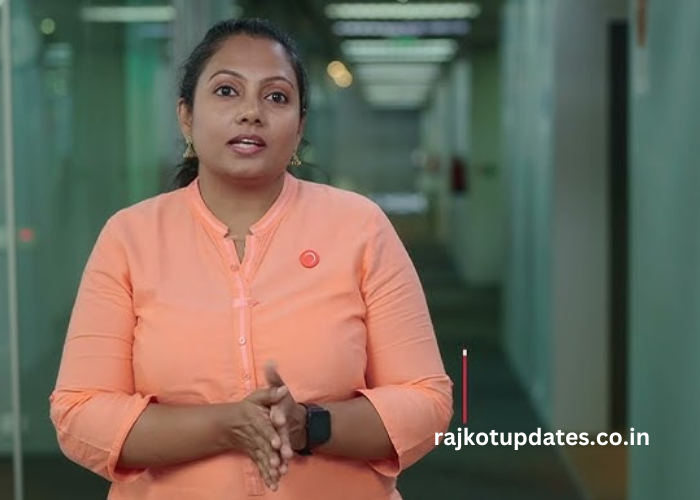In today’s rapidly evolving financial landscape, understanding specific investment instruments and strategies is crucial for both seasoned investors and newcomers. One such term that has been gaining attention is Mutf_in: Hdfc_midc_oppo_up4ui9. This keyword encapsulates a variety of investment options, primarily focusing on mutual funds, particularly those related to HDFC and MIDC opportunities.
These funds offer diverse investment avenues, making them attractive to a broad audience. The importance of exploring these investment options cannot be overstated as they can significantly enhance your portfolio, mitigate risks, and offer substantial returns.
Key Points:
- Mutual funds are managed by financial experts who aim to optimize returns.
- HDFC and MIDC provide a unique blend of opportunities in various sectors.
- Understanding the nuances of “Mutf_in: Hdfc_midc_oppo_up4ui9” can empower investors.
What is Mutf_in?
The term “Mutf_in” refers to mutual fund investments, which pool money from multiple investors to purchase a diversified portfolio of stocks, bonds, or other securities. This investment vehicle is designed to offer individual investors access to a diversified portfolio managed by financial professionals. The primary advantage of investing in mutual funds lies in the risk-sharing aspect, as the investments are spread across various asset classes.
Mutual funds can be categorized into different types based on their underlying assets, investment strategy, and risk profile. For instance, equity mutual funds invest primarily in stocks, whereas debt funds focus on fixed-income securities. Understanding the intricacies of these funds is vital for making informed investment decisions.
How does HDFC influence the mutual fund landscape?
HDFC (Housing Development Finance Corporation) is one of India’s leading financial institutions and plays a significant role in the mutual fund sector. With a robust track record of managing assets, HDFC Mutual Fund has consistently delivered competitive returns to its investors. Their wide range of mutual fund products caters to various investment goals, risk appetites, and time horizons.
HDFC’s reputation for reliability and performance has established it as a preferred choice among investors. Its well-researched investment strategies and strong management teams work diligently to identify opportunities in the market.
What are the investment opportunities with MIDC?
MIDC (Maharashtra Industrial Development Corporation) has been pivotal in the industrial growth of Maharashtra, offering numerous investment opportunities in diverse sectors. The region attracts both domestic and international investors due to its strategic location and well-developed infrastructure.
Investing in sectors supported by MIDC, such as manufacturing, IT, and pharmaceuticals, can yield substantial returns. Mutual funds that focus on industries backed by MIDC can benefit from these growth prospects, as they typically invest in companies poised for growth within these sectors.
Why is “Mutf_in: Hdfc_midc_oppo_up4ui9” gaining traction?
The combination of mutual funds with HDFC’s credibility and the growth potential of MIDC makes “Mutf_in: Hdfc_midc_oppo_up4ui9” an attractive option for investors. The synergy between these elements offers a unique opportunity to capitalize on market trends while minimizing risks.
Investors are increasingly looking for products that offer both safety and growth potential. The rising trend of investing in mutual funds through systematic investment plans (SIPs) further amplifies the appeal, making it easier for individuals to participate in wealth creation over time.
How to evaluate mutual fund performance?
Evaluating the performance of mutual funds is essential for making informed investment choices. Common metrics used for evaluation include:
- Net Asset Value (NAV): The price per unit of the mutual fund that reflects the market value of the fund’s investments.
- Expense Ratio: This indicates the cost of managing the fund, which directly impacts returns.
- Historical Returns: Assessing past performance helps gauge how the fund may perform in the future.
By analyzing these metrics, investors can make more informed decisions about which mutual funds to invest in.
What are the risks associated with mutual funds?
While mutual funds offer several benefits, they also come with inherent risks that investors must be aware of. Key risks include:
- Market Risk: The risk of losing money due to fluctuations in the market.
- Credit Risk: The risk of default by bond issuers within the fund’s portfolio.
- Interest Rate Risk: Changes in interest rates can negatively impact the value of fixed-income securities.
Understanding these risks is crucial for investors to create a balanced portfolio that aligns with their risk tolerance.
How to choose the right mutual fund?
Selecting the right mutual fund requires careful consideration of several factors:
- Investment Goals: Define what you want to achieve—capital appreciation, income, or tax savings.
- Risk Appetite: Assess your comfort level with risk to select funds that match your profile.
- Fund Manager’s Track Record: A fund manager’s expertise and performance history can influence the fund’s success.
By aligning your choices with your financial goals and risk tolerance, you can enhance your investment outcomes.
What is the significance of SIPs in mutual funds?
Systematic Investment Plans (SIPs) allow investors to contribute a fixed amount at regular intervals. This method offers several advantages:
- Rupee Cost Averaging: Investing consistently helps average out the purchase cost of units over time.
- Discipline in Investing: Regular contributions encourage disciplined investing habits.
- Flexibility: Investors can start with a small amount and increase contributions as they grow more comfortable.
SIPs have made mutual funds more accessible to a broader audience, promoting a culture of long-term investing.
How does diversification work in mutual funds?
Diversification is a fundamental principle of investing that involves spreading investments across various assets to mitigate risks. In mutual funds, diversification occurs as the fund invests in multiple securities, which can help reduce the impact of a poor-performing investment.
For instance, if a mutual fund holds stocks from different sectors—technology, healthcare, and finance—weak performance in one sector may be offset by gains in another. This strategy helps to stabilize returns and reduce volatility.
What are the tax implications of mutual fund investments?
Investors must be aware of the tax implications associated with mutual fund investments. Depending on the type of fund, different tax rules apply:
- Equity Funds: Gains from equity funds held for over a year are subject to long-term capital gains tax (LTCG) at 10% if exceeding INR 1 lakh.
- Debt Funds: Gains from debt funds are taxed as per the investor’s income tax slab if held for less than three years. For long-term holdings, a 20% tax rate applies after indexation.
Understanding these tax implications can help investors optimize their returns.
What are the advantages of investing in mutual funds?
Investing in mutual funds offers several advantages, making them a popular choice among investors:
- Professional Management: Funds are managed by experienced professionals who actively make investment decisions.
- Liquidity: Most mutual funds allow investors to redeem their units at any time, providing easy access to funds.
- Diversification: As discussed earlier, mutual funds offer built-in diversification, reducing individual risk.
These advantages make mutual funds an attractive option for both novice and seasoned investors.
How do economic conditions affect mutual funds?
Economic conditions significantly impact the performance of mutual funds. Factors such as interest rates, inflation, and GDP growth play a crucial role in influencing market dynamics.
For instance, in a rising interest rate environment, bond funds may experience declines in value. Conversely, equity funds may thrive during periods of economic expansion. Understanding these macroeconomic factors helps investors make better-informed decisions regarding their mutual fund investments.
How can investors stay updated on mutual fund trends?
Keeping abreast of market trends is vital for effective mutual fund investing. Investors can utilize various resources:
- Financial News Websites: Platforms like Bloomberg and CNBC offer real-time updates on market trends.
- Mutual Fund Rating Agencies: Websites like Morningstar provide ratings and analyses of various mutual funds.
- Investment Forums: Online communities allow investors to share insights and strategies, enhancing collective knowledge.
By staying informed, investors can make timely decisions and adapt their strategies as necessary.
What role do global markets play in mutual fund performance?
Global markets significantly influence domestic mutual funds, especially those investing in international securities. Events such as geopolitical tensions, economic sanctions, and global economic growth can affect market performance.
For example, a recession in a major economy can lead to market downturns worldwide, impacting mutual fund returns. Understanding the interconnectedness of global markets helps investors anticipate changes and adjust their portfolios accordingly.
How to monitor your mutual fund investments?
Monitoring your mutual fund investments is crucial for ensuring they align with your financial goals. Here are some ways to effectively track your investments:
- Regular Performance Reviews: Set aside time each month or quarter to evaluate your fund’s performance against benchmarks.
- Use Financial Tools: Utilize apps and online platforms that provide insights and performance metrics for your funds.
- Stay Informed on Fund Changes: Keep an eye on any changes in fund management, strategy, or fees.
Regular monitoring helps investors make timely adjustments to their portfolios.
What should investors avoid when investing in mutual funds?
While mutual funds offer many benefits, there are common pitfalls that investors should avoid:
- Chasing Past Performance: Just because a fund performed well last year doesn’t guarantee future success.
- Ignoring Fees: High expense ratios can erode returns; always compare fees across similar funds.
- Neglecting Asset Allocation: Ensure that your mutual fund investments align with your overall investment strategy and risk profile.
Being aware of these pitfalls can help investors make more informed choices.
What is the future of mutual fund investing?
The future of mutual fund investing appears promising, driven by technological advancements and changing investor behaviors. The rise of robo-advisors and automated investing platforms has made mutual funds more accessible to a broader audience.
Additionally, the trend towards sustainability and ESG (Environmental, Social, and Governance) investing is shaping the types of mutual funds that will be in demand. Investors are increasingly seeking funds that align with their values, suggesting a shift in focus toward ethical investing.
Conclusion
In conclusion, “Mutf_in: Hdfc_midc_oppo_up4ui9” represents a wealth of opportunities in the mutual fund space, particularly through HDFC and MIDC’s influence. Understanding the various aspects of mutual fund investing—from evaluation metrics to tax implications—empowers investors to make informed decisions. As the financial landscape continues to evolve, staying updated on trends and strategies will remain essential for successful investing.
FAQs
- What is the main benefit of investing in mutual funds?
- The primary benefit is professional management, which diversifies investments and optimizes returns.
- How often should I review my mutual fund investments?
- Regularly reviewing your investments, ideally quarterly, helps ensure alignment with your financial goals.
- What types of mutual funds are available?
- Common types include equity funds, debt funds, hybrid funds, and index funds, each catering to different investment needs.
- Are mutual fund investments safe?
- While they are generally safer than direct stock investments, mutual funds do carry risks depending on their asset class.
- How can I start investing in mutual funds?
- You can start by researching funds online, consulting with a financial advisor, and setting up a SIP or lump-sum investment through a mutual fund company.



